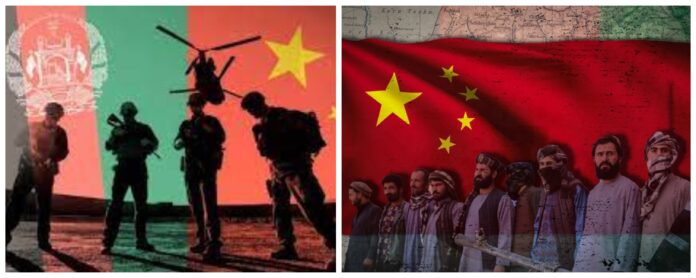After 20 years, the United States has shifted its strategic ambit on the rivalry posed by Russia and China. The US has demonstrated so by its actions and policy moves following August 15, 2021. But, for the first time, Washington acknowledged it in an official briefing.
United States State Department held a press conference on August 8, 2022, where Dr. Colin Kahl, the undersecretary for policy, spoke on the next phase of security assistance to Ukraine. At the end of his talk, he was asked about the US removal of troops from Afghanistan, and whether it was viable to completely withdraw US security forces from the country.
Here is what he had to say:
“So, I’ll say this: There are ongoing lessons learned and after-action reviews here in the Pentagon and elsewhere in the government as well. There’s been some media coverage of the after-action review that Secretary Austin commissioned several months ago. That review is completed. It remains classified and the Secretary is looking at it, and when we have more to report on the status of that report, we will. I do think it’s an obligation for all of us to take a hard look not just in the final days of Afghanistan but the 20 years of the conflict. That’s a — that’s, I know, something that’s important to the Secretary of Defense, important to the White House, it’s important to members of Congress, and I hope, to the degree that it’s possible, we try to take that assessment out of politics and the desire to score points and just to reflect on the lessons from America’s longest war.”
He further said that the fundamental driver of the President’s decision to complete the withdrawal from Afghanistan that was negotiated by the Trump administration under the Doha Agreement was a recognition that America’s strategic priorities had shifted and that the United States had to prioritize the challenge – a pacing challenge posed by the People’s Republic of China.
The Undersecretary’s statement accentuated that after 20 years, the United States has changed its trajectory, on the rivalry posed by Russia and China.
“We had to be prepared to focus more on the threat to European security represented by the acute threat that — that Russia poses. That for too long, we had been bogged down in a particular part of the world at the expense of other, more pressing strategic priorities. And I think the events we’ve been talking about today, whether it’s across the Taiwan Strait or in Russia-Ukraine, validate that assessment — that the world has changed and we need to focus on the biggest threats to our security in the contemporary environment.”, he underscored.
Referring to the recent killing of Al Zawahiri, Kahl illustrated that the US believes it could withdraw troops from Afghanistan and still protect its vital national interests if threatened by something emanating from Afghanistan.
“And, you know, frankly, a lot of our critics didn’t believe that was possible, they didn’t think that you could do things over-the-horizon, that we couldn’t achieve, you know, counter-terrorism objectives, at least the objective of protecting the American homeland if we didn’t have thousands of boots on the ground in — in Afghanistan. That’s not what the President’s view is and I think, in the last 10 days, in the strike that was carried out on Ayman al-Zawahiri, the leader of Al Qaida and the most wanted terrorist on planet Earth and one of the two co-planners for the 9/11 attacks, what we’ve demonstrated to Al Qaida, but also to other terrorist organizations is that we can still reach out and touch them and protect our vital national interests, even though we no longer have thousands of troops in Afghanistan.”, he conceded.
Kahl’s answers made it apparent that the US, indeed, has shifted its focus to the bigger contenders now that it has had its fair share of engagement in Afghanistan. But, on the other hand, the presence of Al Qaeda in Afghanistan still raises a question mark on whether America achieved what it had aspired for. Al Zawahiri’s killing does not extirpate the global terror threat, but it does tell one thing: the US is present in Afghanistan. However, besides terrorism, the US is facing multifaceted challenges – chiefly hailing from the rivalries of China and Russia.
Would the struggle for hegemony amongst the global mastodons lead to a balance of power, or would it create more chaos in the world? One is yet to see the aftermath.




